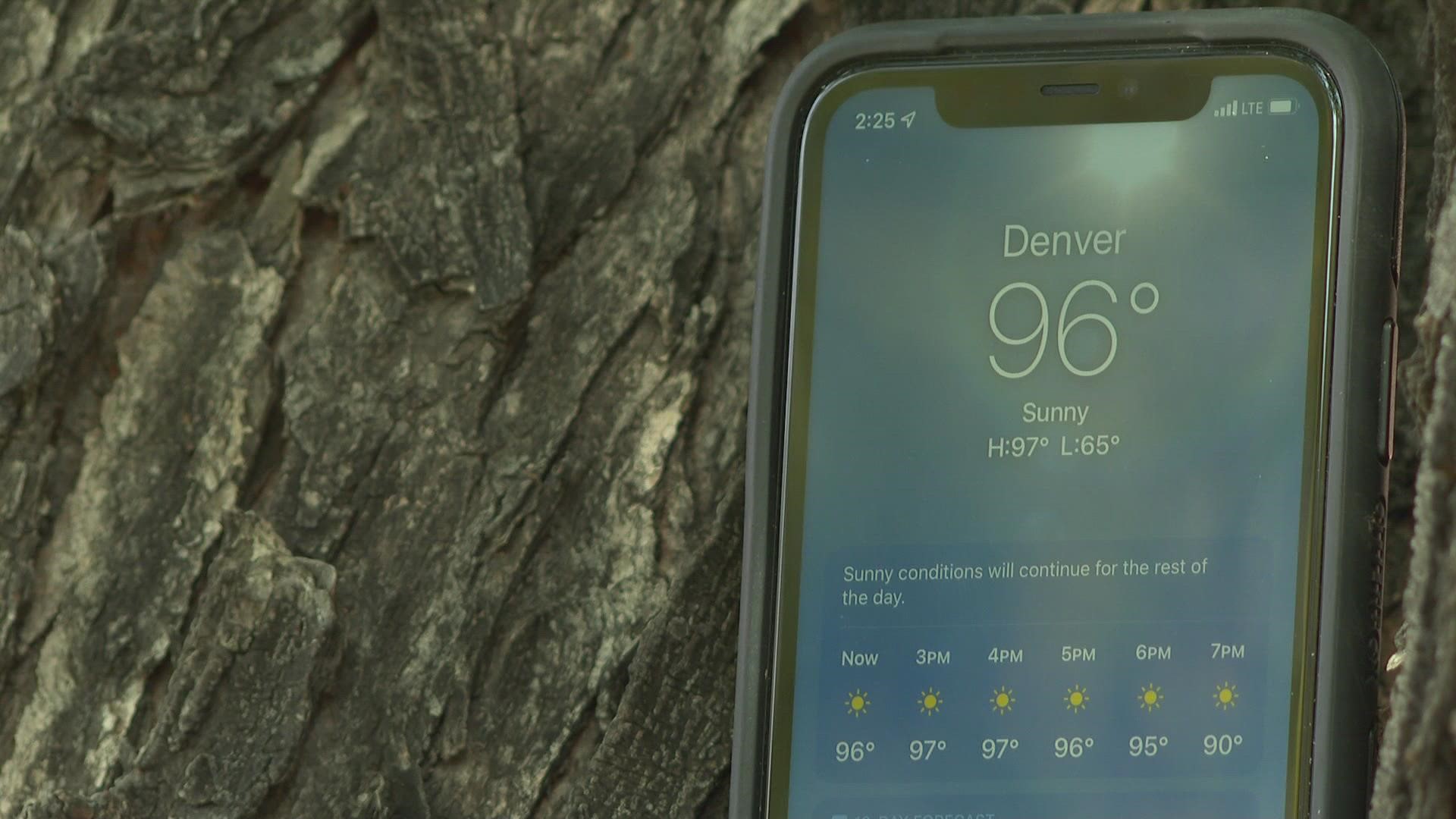DENVER — This may be the year we see the return of the "September epidemic" -- the back-to-school time when a wave of viruses hits kids, especially those who have asthma.
9NEWS spoke with National Jewish Health pulmonologist Dr. Anthony Gerber to discuss why we may see the epidemic come back for the first time in three years.
(Editor’s note: This interview has been edited for context and clarity.)
9NEWS: What is the September epidemic?
Geber: So typically when we talk about "September epidemic," we’re talking about the return to school viral infections. This has been really different since COVID. Traditionally, there’s a return-to-school propagation of viruses which cause asthma exacerbations. A lot of kids will do really well over the summer, then they go back to school, they get that viral infection which triggers their asthma, and it can be a big deal.
Kids who get a viral infection and end up with asthma symptoms can wind up in the emergency room. They can wind up hospitalized. They can end up on systemic steroids, which no one wants to give their kids unless they really need it. So it’s kind of a bad actor most years.
Why haven't we seen this epidemic in a few years?
Geber: It is true that there is some complexity to this question with COVID. Obviously, if everyone’s wearing masks or they’re not in school and people are being vigilant about staying home when they’re sick, you don’t have as much surge in viral infections when school starts.
Certainly in 2021 and definitely in 2020 there was a change in the number of viral infections that we saw, and that’s not just in kids with asthma. That’s across the board. There were just fewer viral infections other than COVID, and there were consequently fewer of these asthma attacks.
People who have COPD, they could have problems from these viral infections as well.
Do we believe we'll see the epidemic make a comeback this year?
Geber: I think we’re going to see more than we did in 2021 and 2020, but I don’t think we’re going to get back to full normal. When you get a bad cold, you get some immunity for a few months. I think there’s going to be a little bit more immunity dampening that typical September surge.
So I think we’re going to start getting normal seasonality this year. It’s not going to be totally normal, and barring another bad variant where everyone is going on lockdown, I expect that over the next year or two things will start to “normalize,” which means looking forward to kids getting viral infections in September when they go back to school.
The only other thing I would say, and maybe it’s a plea, is that maybe we’ll change our behavior a little bit. So during COVID, we got very attuned to, "I’ve got a sore throat, a runny nose. Maybe I’ll keep my kid home." Employers are more flexible of maybe letting you flex. Not for everyone, but I think there’s an opportunity for people to mindfully change their behavior, and maybe their behavior when they send their kids to school and say, 'Look, they’ve got a sniffle and they’ve got a cough. Maybe I’ll keep them home, and by doing that, maybe they won’t have as much transmission in school of non-COVID viral infections.'
Another issue is the air quality. Some years we have really bad air quality in September. The traditional Colorado ozone and even wildfire season kind of ends in the early fall, but as we’ve seen, with climate change that’s not necessarily true, and these last couple of days we’ve had high ozone again.
That air pollution can also trigger those same kinds of symptoms, so that might add to the problem over the next few weeks if we continue to have unseasonably high temperatures.
We’ll definitely know eventually if the virus is following its traditional pattern or not.
Do you have any advice for parents of kids who have asthma?
Geber: I think the main thing is to have an action plan in place. Talk to your doctor or health provider and have in mind what’s your orange zone (if you need extra medication) and what your red zone is (where you have to consult with a health professional or take emergency medications).
Having those plans in place is not going to eliminate the problem, but at least it lets you manage it while it’s happening.
SUGGESTED VIDEOS: Latest from 9NEWS

